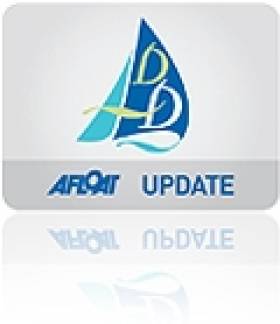Displaying items by tag: Whisper
Solent Whisper - Sailing Catamaran With Hydrofoil System is Launched
#solentwhisper – Southampton Solent graduate Geoff Holt, the first quadriplegic sailor to sail solo across the Atlantic, will be unveiling the University's latest exciting technological development – an innovation which could change the face of small boat inshore racing.
This year's PSP Southampton Boat Show will give the industry its first real look at 'Solent Whisper' - a 5.9m sailing catamaran with a cutting-edge hydrofoil system.
Designed and built using the state-of the-art yacht design and engineering facilities at Solent's Warsash Maritime Academy and city-centre campus, the catamaran's technology has already attracted attention from world-class sailors during sea trials this summer.
The revolutionary new hydrofoil system provides stability, ease and safety, which along with an affordable projected purchase price, has the potential to offer America's Cup-style sailing to the masses. The craft's easy and stable sailing style also mean it could prove popular and accessible for disabled sailors.
Primarily designed with ease and safety in mind, Solent Whisper has also exceeded expectations on the speed front. It comfortably achieves over 25 knots and it can 'fly' on its foils in as little as five knots of wind.
The new hydrofoil technology is the brainchild of Ron Price, a Solent yacht and powercraft design graduate who is now Senior Lecturer in Naval Architecture at the University's Warsash Maritime Academy.
The prototype is the result of months of hard work made possible by the technical experience, support and skills from colleagues across the University and the state-of-the-art facilities at both the engineering workshop at the maritime academy and the composites lab at Solent.
"I was very fortunate to have access to the incredible skill and knowledge of the engineering technicians, the support of staff, and use of the superb facilities at the University," says Ron."
It is hoped that a retail production version will be available for the London Boat Show in January 2015.
"We are engineering the boat in a way that the design is smart enough to keep the production costs low," he says.
"I'm hoping that my design ideas will make inshore and small boat racing more accessible and affordable for the average club racer, those who sail for pleasure and people with disabilities," adds Ron.
Southampton Solent University has a reputation for leading the world in maritime education and technology, and Ron is one of a long line of design graduates who continue to shape the world of sailing including: Jason Ker, working on Sir Ben Ainslie's GB America's Cup bid; Guillame Verdier, who designed the yachts that came both first and second at 2012 Vendee Globe; German Frers Jr; Bill Dixon; Ed Dubois; Rob Humphreys; and Juan Kouyoumdjian.
On the sailing-side world-class Solent alumni include: Helena Lucas, who won Great Britain's first ever sailing gold at the 2012 Paralympics; Paul Goodison who took gold at the 2008 Olympics; and Herve Piveteau who sailed to victory in the Production Boat Class at the Mini Transat 2008, the French equivalent of the OSTAR
Dun Laoghaire to Dingle Race 2011 is Launched
The possibility of an Open 40 entry plus a new white sail division are just some of the developments for the tenth Dingle Skellig Hotel Dun Laoghaire to Dingle Race. Over 50 (SCROLL DOWN FOR PHOTOS BY MICHAEL CHESTER) gathered at the National YC in Dun Laoghaire last night to hear local TD and the Minister for Sport, Tourism and Culture Mary Hanafin give a ringing endorsement for the unique 320-mile offshore race when it sets sail on June 11th. A notice of race and entry form is available for download below.
The last race attracted 39 entries and a course record was set by Michael Cotter's Whisper. This year organisers Martin Crotty and Brian Barry along with Dingle Harbour master Brian Farrell are confident that they will break the 40 boat barrier. They may well be right as the event has been specifically timed to bring Dublin boats to the south coast for ten days of racing at the ICRA Nationals in Cork Harbour and the Sovereigns Cup the following week in Kinsale.
The event is also benefitting from inclusion in this year's ISORA calendar.
Present last night were represntatives from the major Bay clubs, including Breda Dillon from Howth YC and Fintan Cains of ICRA. Peter Ryan of ISORA, who is also the National YC commodore spoke about plans to develop off shore sailing and the club's plans to welcome the international Figaro offshore fleet in August.
Solo sailor Mick Lidddy who is making a bid for an Irish entry into the race was also in attendance.
SCROLL DOWN FOR LAUNCH PHOTOS BY MICHAEL CHESTER
Afloat coverage of the 2009 Race is HERE































































